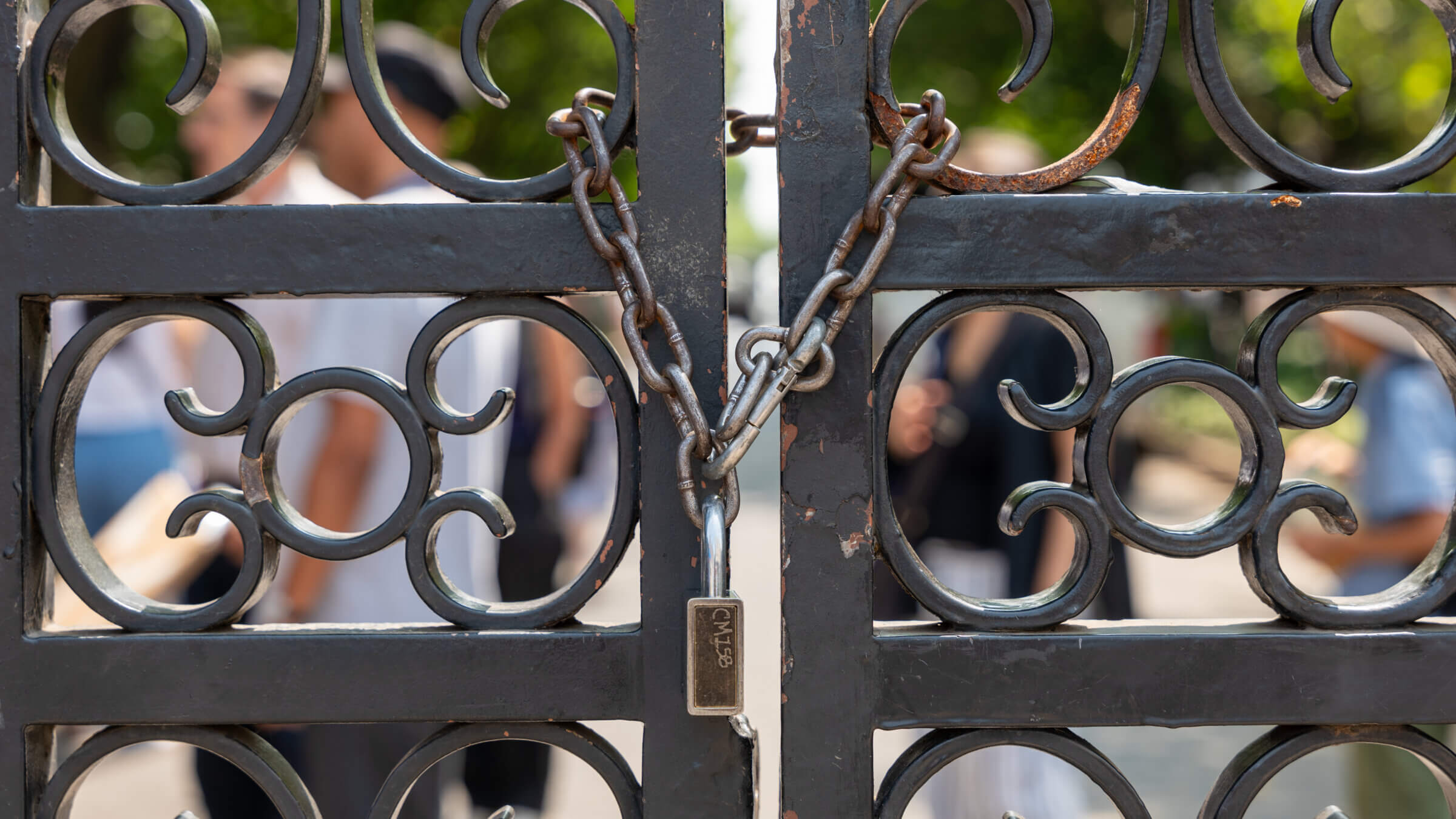The valuable lesson that Oct. 7 taught me
I don’t live in constant fear, but I’ve grown and changed in my observation of Judaism

The author says that protests, like the ones at Columbia University (pictured above), have changed his opinion about where he’ll be applying to college. Photo by Getty Images
This is one in a series of essays written by high school students in response to the events of Oct. 7 and its aftermath. You can find the full collection of essays at this page.
I was in synagogue on Oct. 7, and my family and I were hearing some filtered, second-hand news about what was going on in Israel. I can still remember walking back home with my dad in silence, trying to understand what was going on. I turned to him and said “You don’t think it’s really that bad, do you?”
“I’m usually able to tell when something big is happening,” he said. “When I first heard about 9/11, I knew it was worse than just an accidental plane crash. Whatever is happening today, it’s going to affect us for years to come.”
He was right. Everything changed for me after October 7th. At first, I naively assumed that whatever was happening would be contained to the Middle East. Still, I had family and friends in Israel, and I tried to do everything I could to help them from afar. I organized charity fundraisers and attended solidarity marches, but I also grew in my observance of Judaism, valuing the religion and culture I was a part of more than I ever had before.
Then, after a surprisingly short period of time, the attacks started. I started hearing stories on the news of violent protests, demonstrations on college campuses, and open antisemitism in the United States and abroad. Suddenly the fight wasn’t thousands of miles away; it had morphed into a struggle much closer to home. It is not infrequent that a driver will yell out “Free Palestine,” as my friends and I are walking, just because we’re wearing yarmulkes, or that there’ll be pro-Palestinain protests blocking busy street corners.
Thankfully, because I live in Memphis, Tenn., where many support the local Jews and Israel’s struggle, I don’t live in constant fear. Still, this war has significantly affected my life and my future, specifically regarding the college application process. I was always told that I had plenty of options and I didn’t need to stress about it, but the world has changed now. My list of colleges has been significantly shortened, cutting out schools that have histories of antisemitic violence and encampments in the past year.
At the same time, I have changed as a person since Oct. 7. Because of how I’ve grown and changed in my observance of Judaism, I want a school that not only has a safe campus, but one that has all the resources to help me continue my Jewish journey — a decent-sized Jewish community, kosher food, a daily minyan, and so on. Many people choose their colleges based on their location, their interests, and their size. I’m choosing mine based on how “Jewish” they are. The war now continues to be fought, with no significant end in sight. I’m worried that as I graduate high school and start my adult life, the conflict will overshadow everything that I do and accomplish.
Yet, out of everything that happened this past year, Oct. 7 has taught me one valuable lesson: Lfe is unpredictable. No one has any idea what is going to happen in the future, and we have to be able to value the life we have now. So many people have died or been captured in the past year that it’s hard to feel significant emotional pain for any specific individual. Still, we can take this information, and understand that often our futures are shorter than we wish them to be. We have to live in the moment, and appreciate every moment of peace we have.
A message from our Publisher & CEO Rachel Fishman Feddersen

I hope you appreciated this article. Before you go, I’d like to ask you to please support the Forward’s award-winning, nonprofit journalism so that we can be prepared for whatever news 2025 brings.
At a time when other newsrooms are closing or cutting back, the Forward has removed its paywall and invested additional resources to report on the ground from Israel and around the U.S. on the impact of the war, rising antisemitism and polarized discourse.
Readers like you make it all possible. Support our work by becoming a Forward Member and connect with our journalism and your community.
— Rachel Fishman Feddersen, Publisher and CEO




























